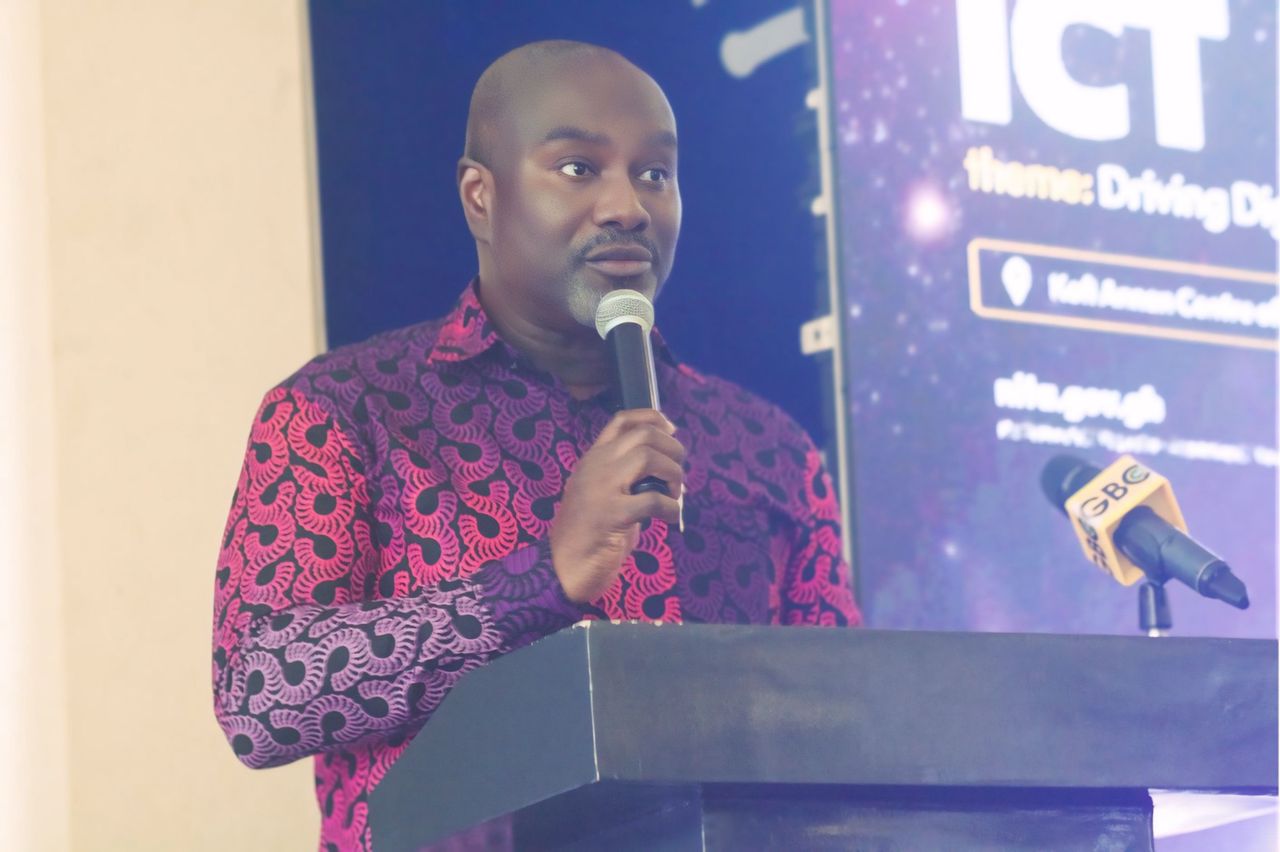adverts
The first-ever National ICT Week has been inaugurated in Accra, marked by a decisive statement from Richard Okyere-Fosu, Director-General of the National Information Technology Agency (NITA). Okyere-Fosu vowed to eliminate unnecessary spending by government institutions on ICT resources.
Designed to increase public awareness of NITA’s regulatory role, the week-long event also aims to bring together industry stakeholders to explore how digitalisation can drive national development within a well-regulated environment.
In an exclusive conversation with Puretvonline.com at the opening ceremony, Okyere-Fosu highlighted NITA’s progress since officially becoming a regulator in 2021.
adverts
He noted that government has built the largest data center in West Africa of which their business partner, Smart Infraco Limited managers .
Okyere-Fosu added that this data center intends to serve all state institutions in Ghana.
Despite this, some public entities continue to invest in building their own data centres, which Okyere-Fosu considers a misuse of resources.
“When NITA was solely providing ICT services to government institutions, many of those institutions didn’t even pay for our services, leaving us without funds to resolve technical issues like fibre cuts and data centre problems,” he said.
“Now that we’ve built a top-tier data centre, these same institutions are wasting money on their own facilities instead of utilising what NITA provides.”
Okyere-Fosu stressed the need for better resource management, stating, “We must consolidate and use our resources effectively, and that’s exactly what NITA is advocating for.”
He explained that NITA’s previous role as a service provider led state institutions to become accustomed to operating independently, but this is changing as NITA now focusses on its regulatory role. NITA is poised to set the standards for government ICT operations, ensuring a more coordinated approach.
In addition to helping shape the Digital Economy Policy and Strategy alongside the Ministry of Communications and Digitalisation, NITA is developing the Common National Digital Architecture (CNDA). This framework will require any organisation providing ICT or digital services to the government to adhere to specific guidelines, or they will not be eligible to participate.
“We will dictate how government technology is utilised and determine who is qualified to provide digital services to the government,” Okyere-Fosu declared.
He also mentioned the President’s initiative to create a committee aimed at achieving digital interoperability across government institutions, a goal in which NITA plays a pivotal role.
Okyere-Fosu highlighted the importance of interoperability, asserting that without it, digitalisation efforts would fall short.
He encouraged state institutions to work closely with NITA to ensure adherence to standards that promote effective integration and efficiency in government operations.
Looking forward, Okyere-Fosu expressed optimism about NITA’s trajectory, stating, “Whoever takes over NITA after the 2024 elections will inherit an agency in a much better position than when I started.”
National ICT Week, themed “Driving Digital Transformation,” is being held from August 26th to August 30th, 2024, at the Ghana-India Kofi Annan Centre for Excellence (AITI-KACE). The event brings together key industry players, professionals, government officials, academics, and the general public to delve into the latest trends, innovations, and opportunities in the ICT sector. Activities during the week include keynote speeches, panel discussions, workshops, conferences, exhibitions, and networking sessions, all aimed at enhancing collaboration and knowledge exchange.
Topics slated for discussion include digital inclusion, building digital trust through public key infrastructure (PKI), fostering digital innovation, capacity building, and promoting effective collaboration between the public and private sectors in the digital realm.


